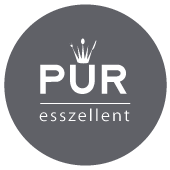Whether you’re an elite athlete or someone who exercises to stay healthy, nutrition plays a pivotal role in enhancing performance and speeding up recovery. Proper nutrition fuels your workouts, supports muscle repair, and replenishes energy stores, while supplements can provide an added edge by filling in nutritional gaps or delivering targeted benefits. Let’s explore how the right combination of nutrition and supplements can optimize your fitness journey and recovery process.
1. The Foundation: Nutrition for Fitness Success
Nutrition is the cornerstone of fitness and emergent health corp recovery, providing the energy and nutrients your body needs to perform and recover effectively.
Key Components of Fitness Nutrition:
1. Carbohydrates: The Body’s Primary Fuel Source
- Carbs are broken down into glucose, which powers your muscles during workouts.
- Best Sources: Whole grains, fruits, vegetables, and legumes.
- Timing Tip: Consume carbs 1–3 hours before exercise to fuel performance and within 30 minutes post-workout to replenish glycogen stores.
2. Protein: Building and Repairing Muscle
- Protein provides the amino acids needed for muscle repair and growth after exercise.
- Best Sources: Lean meats, fish, eggs, dairy, tofu, tempeh, and legumes.
- Timing Tip: Aim for 20–30 grams of protein within an hour after exercise to maximize muscle recovery.
3. Healthy Fats: Sustained Energy and Hormonal Balance
- Fats are essential for long-lasting energy and nutrient absorption.
- Best Sources: Avocados, nuts, seeds, olive oil, and fatty fish.
4. Hydration: The Often-Overlooked Essential
- Dehydration impairs performance and recovery.
- Tip: Drink water throughout the day and include electrolyte-rich beverages after intense workouts.
Pro Tip: A balanced diet rich in whole foods provides the foundation for fitness and recovery, reducing the need for excessive supplementation.
2. The Role of Supplements in Fitness and Recovery
Supplements can enhance your fitness routine by addressing specific needs, improving performance, and speeding up recovery. Here are the most effective supplements to consider:
1. Protein Powders
- Why It Helps: Convenient way to meet protein needs, especially post-workout.
- Best Types: Whey protein (fast absorption), casein protein (slow absorption), or plant-based options like pea and rice protein.
2. Branched-Chain Amino Acids (BCAAs)
- Why It Helps: Supports muscle repair and reduces exercise-induced muscle soreness.
- When to Use: During or after workouts, especially for resistance training.
3. Creatine
- Why It Helps: Increases strength, power, and endurance by replenishing energy stores in muscles.
- How to Use: Take 3–5 grams daily for consistent benefits.
4. Omega-3 Fatty Acids
- Why It Helps: Reduces inflammation, supports joint health, and aids recovery.
- Best Source: Fish oil or algal oil supplements for a plant-based option.
5. Electrolytes
- Why It Helps: Replaces minerals lost through sweat, such as sodium, potassium, and magnesium.
- Best Form: Electrolyte powders or tablets added to water.
6. L-Glutamine
- Why It Helps: Speeds up muscle recovery and supports the immune system.
- When to Use: After intense or prolonged exercise sessions.
7. Caffeine
- Why It Helps: Boosts energy, focus, and endurance during workouts.
- Timing Tip: Consume 30–60 minutes before exercise for maximum effectiveness.
Pro Tip: Supplements are most effective when combined with proper nutrition and training. Always choose high-quality, third-party-tested products.
3. Nutrition Strategies for Optimal Recovery
Recovery is just as important as the workout itself. Proper post-exercise nutrition helps repair tissues, reduce soreness, and prepare your body for the next session.
Post-Workout Nutrition Essentials:
1. The 3:1 Carbohydrate-to-Protein Ratio:
- Combining carbs and protein enhances glycogen replenishment and muscle repair.
- Example Meal: A smoothie with banana, protein powder, and almond milk.
2. Anti-Inflammatory Foods:
- Reduce muscle soreness and support recovery.
- Best Options: Turmeric, ginger, tart cherries, and fatty fish.
3. Rehydrate with Electrolytes:
- Replenish fluids lost during exercise and restore electrolyte balance.
- Best Drink: Coconut water or water with added electrolyte powder.
4. Micronutrients for Recovery:
- Vitamin C and Zinc: Support tissue repair and immunity.
- Magnesium: Helps with muscle relaxation and reduces cramps.
Pro Tip: Plan your post-workout meals or snacks ahead of time to avoid skipping this crucial recovery step.
4. Common Mistakes to Avoid
Even with the best intentions, it’s easy to make mistakes that hinder your progress. Here’s what to watch out for:
1. Skipping Meals or Undereating:
- Your body needs fuel to recover and perform. Undereating can lead to fatigue and muscle loss.
2. Overloading on Supplements:
- Supplements can’t replace a balanced diet. Over-relying on them may lead to nutrient imbalances or side effects.
3. Ignoring Hydration:
- Dehydration slows recovery and impairs performance. Don’t underestimate the importance of drinking enough water.
4. Neglecting Individual Needs:
- Your fitness goals, body type, and activity level determine your nutritional requirements. Avoid one-size-fits-all approaches.
Pro Tip: Work with a dietitian or fitness coach to tailor your nutrition and supplement plan to your unique goals.
Conclusion:
The combination of proper nutrition and targeted supplements can take your fitness and recovery to the next level. Whole foods should always form the foundation of your diet, providing the essential nutrients your body needs. Supplements can then fill specific gaps, support performance, and enhance recovery.
Ready to fuel your fitness journey? Start with small, consistent changes to your nutrition and supplement routine, and watch your energy, strength, and recovery improve!






Discussion
Leave a reply